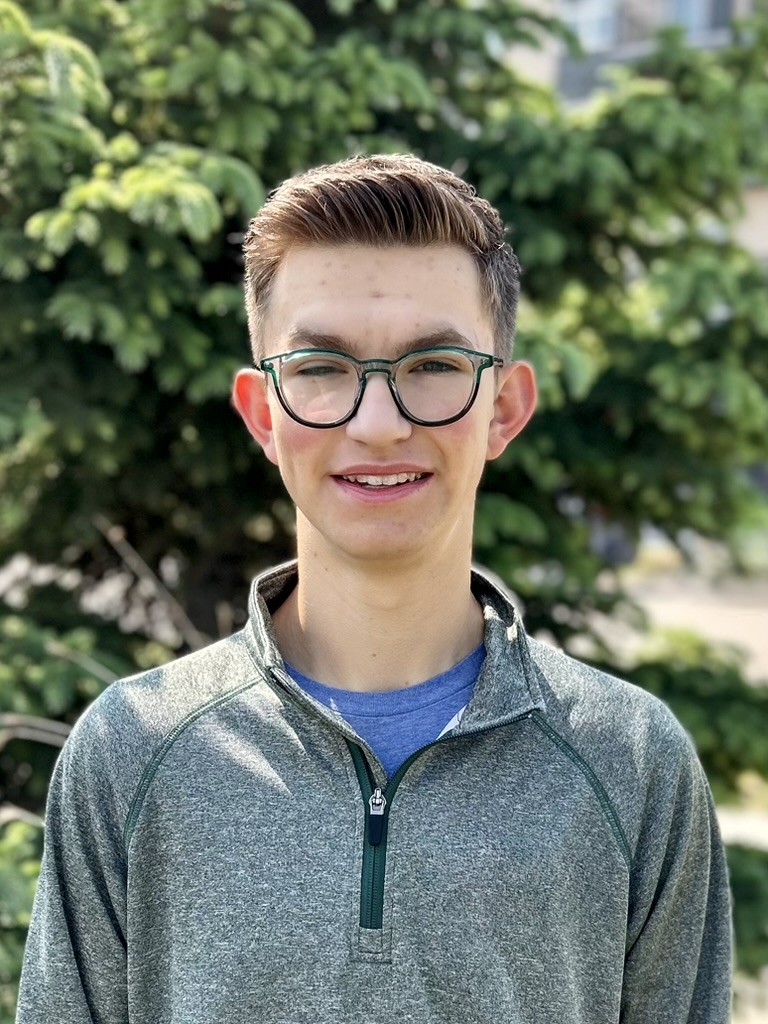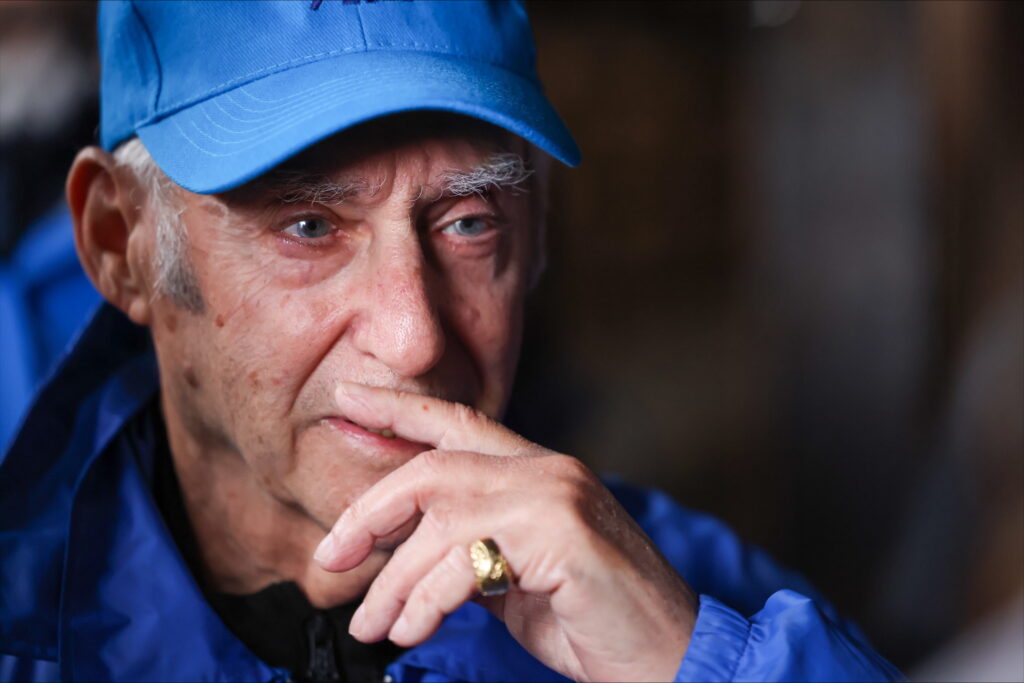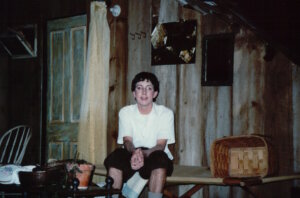Local News
JNF Canada says a new charity called “Friends of JNF Canada” will be able to issue tax receipts to donors

By BERNIE BELLAN (Sept. 11, 2025) It’s a complicated – and very confusing story – and it goes back to an earth-shaking decision issued by the Canada Revenue Agency on August 10, 2024. That decision, which was published in the Canada Gazette (which is where an announcenment about any charity whose charitable status has been revoked is published) was to revoke the Jewish National Fund Canada’s charitable status.
To give you an idea how important charitable donations have been to JNF Canada, according to the most recent audited financial statements that are available, “In 2023, JNF Canada received $20.2 million in donations and had a total revenue of $22.2 million.”
We’ve written numerous times about what led up to CRA’s decision to revoke JNF Canada’s charitable status and the resulting aftermath – in which JNF Canada was thrown into disarray.
Much of the reporting on this story was done by Ellen Bessner, writing for the Canadian Jewish News. Bessner was stolid in her research and although a good portion of what she wrote laid the blame for what happened to JNF Canada at the feet of JNF Canada itself, she provided exhausting detail about what lay behind CRA’s decision. If you want to read past articles that follow the chronology of events following that August 10, 2024 decision by CRA, you can simply enter JNF in the search engine on jewishpostandnews.ca, and you’ll find a great many stories about not only what led up to CRA’s decision to remove JNF Canada’s charitable status, but what steps JNF Canada took subsequent to that momentous decision.
During the past 13 months though, JNF Canada has been embroiled in a legal battle against CRA on different levels – in two different courts: The Federal Court and the Federal Court of Canada. You’ll have to read an article posted on June 17 this year on jewishpostandnews.ca to understand the difference between the two courts. For the purpose of this article, however, it is only important to note that JNF Canada’s appeal to the Federal Court was turned down by that court – for technical reasons, i.e., the Federal Court ruled that it was not the proper court to hear the particular matter that JNF Canada had brought forward; however, the appeal to the Federal Court of Canada is still underway. It may take quite some time before that court issues a decision and, if it also goes against JNF Canada, there is a strong likelihood JNF Canada will take its case all the way to the Supreme Court of Canada. The upshot is that it may be years before the legal battle JNF Canada has been waging with CRA may be resolved.
In the meantime though, JNF Canada had been working to come up with a solution to the challenge of its having been deregistered by CRA as a charity able to issue tax receipts.
On September 2, JNF Canada sent out an email to its supporters in which it gave a preview of what was about to happen. That email noted: “This past year has been challenging for JNF Canada and for Jewish communities across the country.
“Even without charitable status and amid an ongoing legal dispute with the CRA JNF Canada has remained committed to its mission… The absence of our charitable status has limited our ability to operate effectively and our supporters have told us they want their donations to have the full impact, including the ability to receive charitable receipts… In response wonderful friends stepped forward to dedicate their charity to caring out similar work and have appropriately renamed it “Friends of JNF Canada” (emphasis mine).
What did that mean? I wondered. The email also noted that “JNF Canada will continue to operate as it fights its legal battle against the CRA, for its right to fair treatment.”
So, JNF Canada is still alive as an organization called JNF Canada – but it has now managed to find a way to issue tax receipts to its supporters. The September 2 email didn’t go into any detail as to what “Friends of JNF Canada” was – and how it had come about.
But, in a story issued by the CJN on September 4, it was noted that “JNF Canada, whose charitable tax status was revoked by the Canada Revenue Agency (CRA) in 2024, has created a new charitable entity linked to the organization. The new charity, Friends of JNF Canada, officially launches on Sept. 8.”
“A new charitable entity?” I wondered. What did that mean?
The CJN story, written by Jonathan Rothman, went on to note that “Friends of JNF Canada will have the ability to issue charitable tax receipts, (Nathan) Disenhouse (National President, JNF Canada) told the National Post in an interview, saying the new organization’s fundraising for Israel would be done ‘in a similar way that JNF Canada did, but with the ability to issue tax receipts.’
My reaction upon reading Rothman’s story was: “What? This sounds just like JNF Canada, but with a new name. Isn’t this really an end-around that would allow JNF Canada to circumvent CRA’s removal of JNF Canada’s charitable status?”
So, on September 5, I wrote to CRA, asking this question: “Can you confirm that ‘Friends of JNF Canada’ is now a registered charity, able to issue tax receipts?”
I received a response that same day saying that someone would get back to me with an answer.
The answer arrived September 10: “The public may consult the CRA’s List of charities and certain other qualified donees to confirm whether an organization is a registered charity or other qualified donee. For clarity, the public may also confirm in the same registry: the registration number, the current status of the charity, the date since the status has been valid, the type of qualified donee, the designation, and the website of a specific charity. We can confirm that Friends of JNF (emphasis mine) was registered as a public foundation effective September 22, 2022. Note that the governing documents in our records reflect a legal name change from ‘The Benzimra Foundation’ to ‘Friends of JNF’ effective August 14, 2025.”
Note that the email from CRA referred twice to the charity as “Friends of JNF,” not “Friends of JNF Canada.” Was that just a typing error or was it more significant? I again wondered.
Adding to the confusion, JNF Canada issued another email on September 10, in which it said, in part, that …wonderful friends stepped forward to dedicate their charity to carrying out similar work (to what JNF Canada had been doing) and have appropriately renamed it Friends of JNF Canada. With our Board of Director’s (sic.) full endorsement this organization will continue supporting the kinds of projects that have always defined JNF Canada’s mission: serving Israelis in need through charitable projects that help the vulnerable, enhance environmental sustainability, and support the mental & physical health of Israelis in need.”That email did not name the Benzimra Foundation as the charity that had agreed to change its name to Friends of JNF Canada but, as you can see in the email from CRA, CRA disclosed that information.
We wondered whether Friends of JNF and Friends of JNF Canada are one and the same. We received an explanation from Lance Davis, who was formerly CEO of JNF Canada and is now CEO of Friends of JNF Canada: “Our lawyer filed the name Friends of JNF. We were given additional input from supporters that it may be confusing as there are many JNFs around the world and we should specify Canada so that it’s clear that we are an independent Canadian charity funding Canadian directed projects. We are not a subsidiary of any other charity, as we are totally independent.
“Therefore, we decided to operate as Friends of JNF Canada.
“It is extremely common for businesses to have an operating name that is slightly different that the registered name. At this point we have so much to do to get our activities and campaigns started, so we will not be revisiting this now. However, in the future, the board may want to do so.”
But, in an October 2024 article in CJN, it was noted that another Canadian charity known as the Ne’eman Foundation had also had its charitable status revoked in August 2024. Subsequently, that same article reported, “the organization, which distributes funds to various causes in Israel, began instructing prospective donors to contribute through another recently formed Canadian charity (emphasis mine).
“Six weeks later, Canadian officials imposed a one-year suspension on that charity, called the Emunim Fund, according to its listing on the Canada Revenue Agency website.
“CRA regulators had previously raised concerns about particular Ne’eman Foundation projects in Israel, and a volunteer with Jewish pro-Palestinian group had alleged to the agency that the Ne’eman Foundation was using the Emunim Fund to skirt the revocation (emphasis mine).
“The agency has not publicly disclosed why it suspended the Emunim Fund, and said in a statement that it is barred by law from commenting on individual cases.”
Thus, there are two questions for which we’re awaiting answers: Is the name of the charity which JNF Canada now says will be able to issue tax receipts to donors who might previously have donated to JNF Canada “Friends of JNF” (as the CRA email said was the name) or is it “Friends of JNF Canada,” which was what the emails from JNF Canada says it its name?
Second, although the CRA email would seem to indicate that it has granted registration to this new charity – whether its name is Friends of JNF or perhaps Friends of JNF Canada, given CRA’s previous revocation of the registration of a charity linked to Israel when it changed its name from the Ne’eman Foundation to the Ne’eman Fund, will CRA follow suit and suspend the new charity whose name closely resembles JNF Canada’s name?
As I wrote – this is all so confusing. Even though spokespersons for both CRA and JNF Canada have been quick to respond to emails from me in which I’ve been asking questions trying to sort out exactly what has been going on, it seems that each email leads me to ask yet more questions.
If I receive more information from either CRA or JNF Canada that helps to clarify the questions I’ve asked, I’ll update this story – so keep checking back.
Local News
Further to the Simkin Centre’s financial situation

By BERNIE BELLAN A while back I published an article about the deficit situation at the Simkin Centre. (You can read it at “Simkin Centre deficit situation.“) I was prompted to write that particular article after reading a piece written by Free Press Faith writer John Longhurst in the August 5 issue of the Free Press about the dire situation personal care homes in Winnipeg are in when it comes to trying to provide their residents with decent food.
Yet, Longhurst made one very serious mistake in his article when he wrote that the “provincial government, through the Winnipeg Regional Health Authority, has not increased the amount of funding it provides for care-home residents in Manitoba since 2009.”
In fact, the WRHA has given annual increases to personal care homes, but its allocations are not broken down by categories, such as food or salaries. As a spokesperson for the WRHA explained to me in an email: “PCHs receive per diem global operating funding based on the number of licensed beds they operate. This funding model is designed to support the full range of operating costs associated with resident care, including staffing, food services, utilities, building operations, and other day-to-day expenses.”
Now, one can make a perfectly valid argument that the level of funding from the WRHA has not kept up with inflation, especially inflation in food costs, but the Simkin Centre is in an even more precarious position because of the skyrocketing cost of kosher food.
“In recent years,” according to an article on the internet, “the cost of kosher food has increased significantly, often outpacing general food inflation due to unique supply chain pressures and specialized production requirements.”
Yet, when I asked Laurie Cerqueti how much maintaining a kosher facility has cost the Simkin Centre, as I noted in my previous article about the deficit situation at Simkin, she responded: “approximately $300,000 of our deficit was due to food services. I do not have a specific number as far as how much of the deficit is a result of kosher food…So really this is not a kosher food issue as much is it is an inflation and funding issue.”
One reader, however, after having read my article about the deficit situation at Simkin, had this to say: “In John Longhurst’s article on Aug 5, 2025 in the Free Press, Laurie (Cerqueti) was quoted as saying that the annual kosher meal costs at Simkin were $6070 per resident. At Bethania nursing home in 2023, the non-kosher meal costs in 2023 were quoted as $4056 per resident per year. Even allowing for a 15% increase for inflation over 2 years, the non-kosher food costs there would be $4664.40 or 24% lower than Simkin’s annual current kosher food costs. If Simkin served non-kosher food to 150 of its 200 residents and kosher food to half of its Jewish residents who wish to keep kosher, by my calculation it would save approximately $200,000/year. If all of Simkin’s Jewish residents wished to keep kosher, the annual savings would be slightly less at $141,000.”
But – let’s be honest: Even though many Jewish nursing homes in the US have adopted exactly that model of food service – where kosher food is available to those residents who would want it, otherwise the food served would be nonkosher, it appears that keeping Simkin kosher – even though 45% of its residents aren’t even Jewish – is a “sacred cow” (pun intended.)
So, if Simkin must remain kosher – even though maintaining it as a kosher facility is only adding to its accumulated deficit situation – which currently stands at $779,426 as of March 31, 2025,I wondered whether there were some other ways Simkin could address its deficit while still remaining kosher.
In response to my asking her how Simkin proposes to deal with its deficit situation, Laurie Cerqueti wrote: “There are other homes in worse financial position than us. There are 2 homes I am aware of that are in the process of handing over the keys to the WRHA as they are no longer financially sustainable.”
I wondered though, whether the Simkin Centre Foundation, which is managed by the Jewish Foundation of Manitoba might not be able to help the Simkin Centre reduce its deficit. According to the Jewish Foundation’s 2024 annual report, The Saul and Claribel Simkin Centre Foundation, which is managed by the Jewish Foundation, had a total value of $11,017,635.
The Jewish Foundation did distribute $565,078 to the Simkin Centre in 2024, but even so, I wondered whether it might be able to distribute more.
According to John Diamond, CEO of the Jewish Foundation, however, the bylaws of the Foundation dictate that no more than 5% of the value of a particular fund be distributed in any one year. There is one distinguishing characteristic about the Saul and Claribel Simkin Centre Foundation, in that a portion of their fund is “encroachable.” The encroachable capital is not owned by JFM. It is held in trust by JFM but is beneficially owned by Simkin, similar to a “bank deposit”. While held by the JFM, these funds are included in the calculation of Simkin’s annual distribution.
I asked John Diamond whether any consideration had been given to increasing the distribution that the Jewish Foundation could make to the Simkin Centre above the 5% limit that would normally apply to a particular fund under the Foundation’s management.
Here is what John wrote in response: “The Simkin does have an encroachable fund. That means that at their request, they can encroach on the capital of that fund only (with restrictions). This encroachment is not an increased distribution; rather, it represents a return of capital that also negatively affects the endowment’s future distributions.
”It is strongly recommended that encroachable funds not be used for operating expenses. If you encroach and spend the capital, the organization will receive fewer distribution dollars in the next year and every year as the capital base erodes. Therefore, the intent of encroachable funds is for capital projects, not recurring expenses.”
I asked Laurie Cerqueti whether there might be some consideration given to asking for an “encroachment” into the capital within the Saul and Claribel Simkin Centre Foundation?
She responded: “We are not in a position where we are needing to dip into the encroachable part of our endowment fund. Both of our Boards (the Simkin Centre board and the Saul and Claribel Simkin Centre Foundation board) are aware of our financial situation and we are all working together to move forward in a sustainable way.”
At the same time though, I wondered where donations to the Simkin Centre end up? Do they all end up in the Simkin Centre Foundation, for instance, I asked Laurie Cerqueti on December 15.
Her response back then was: “All donations go through our Foundation.”
I was somewhat surprised to read that answer, so I asked a follow-up question for clarification: “Do all donations made to the Simkin Centre end up in the Simkin Centre Foundation at the Jewish Foundation?”
The response this time was: “No they do not.”
So, I asked: “So, how do you decide which donations end up at the Foundation? Is there a formula?”
Laurie’s response was: “We have a mechanism in place for this and it is an internal matter.”
Finally, I asked how then, the Simkin Centre was financing its accumulated deficit? Was it through a “line of credit with a bank?” I wondered.
To date, I have yet to receive a response to that question. I admit that I am puzzled that a personal care home which has a sizeable foundation supporting it would not want to dip into the capital of that foundation when it is facing a financial predicament. Yes, I can see wanting the value of the foundation to grow – but that’s for the future. I don’t know whether I’d call a $779,425 deficit a crisis; that’s for others to determine, but it seems pretty serious to me.
One area that I didn’t even touch upon in this article, though – and it’s something I’ve written about time and time again, is the quality of the food at the Simkin Centre.
To end this, I’ll refer to a quote Laurie Cerqueti gave to John Longhurst when he wrote his article about the problems personal care homes in Winnipeg are facing: “When it comes to her food budget, ‘we can’t keep making the same number of bricks with less straw.’ “
Local News
Exclusive: Security Enhancement Fund to be announced by Province in coming days

By NOAH STRAUSS The province is set to announce a new program called the Security Enhancement Fund, which
will provide funding to religious and faith groups to improve security at institutions such as
synagogues and mosques. In an exclusive interview, Minister of Justice Matt Wiebe outlined the
plan and detailed what the province has already done to help protect Jewish Manitobans.
“What we want to do is to be able to provide the community with the kind of tools that they need
to stay safe and to ensure that everyone in the community feels safe,” said Wiebe.
The fund will provide a missing link between government and religious communities, and
communities will now be able to make their own choices without money being a big restraint.
Essentially, the power will be in the hands of community leaders and not government officials.
The minister noted that the new partnerships will provide the province a better understanding of
the needs of every community. Rather than the province making the choices, they are
essentially giving a voice to each community. The grants, totalling $1 million, will provide funds to enhance security at facilities like synagogues.
The Jewish Post reached out to Dr. Rena Secter Elbaze, executive director of Congregation
Shaarey Zedek. “It’s important that the government show us that they’re taking security seriously and stepping up to the plate to make this offer. We will absolutely be applying for grant money,” she said. Elbaze also wants to know whether or not the government will cover the costs of things the synagogue has already spent money on. She noted that the province has, in the past, made grants available to have security guards present.
When speaking about what the Justice Ministry has already done to protect Jewish Manitobans,
Wiebe brought up the new special prosecutor that is focusing on hate crimes. Wiebe said the
special prosecutor works closely with the Winnipeg Police Service “to support investigations and
prosecute hate crimes. Wiebe also went on to say how the Department of Education has been helping to fight antisemitism. “The creation of the Holocaust education curriculum is an important step in the right direction,” he said. When asked about Oliver Didtger Ederhof, the individual charged with 14 counts of mischief including vandalism of Shaarey Zedek, Wiebe said decisions like bail and police undertakings are decisions that are in part made by the federal government through the criminal code and policies. “We’re going to continue to advocate for stricter bail reform at the federal level…. I’ve been very clear, we issued clarified directives around bail to our Crown prosecutors.”
The full announcement from the province is expected in the coming days.
Local News
March of the Living 2023 participants form Taste of Hope project to help honour the memory of Holocaust survivor Alex Buckman

By BERNIE BELLAN The March of the Living is an annual two-week international educational program that brings thousands of students and adults to Poland and Israel to study the Holocaust, Jewish history, and the rise of the State of Israel. Founded in 1988, it features a 3-kilometer silent walk from Auschwitz to Birkenau on Yom HaShoah (Holocaust Remembrance Day).
Attendees on the march are accompanied by adults, some of whom themselves have been Holocaust survivors.
Following the week in Poland, participants travel to Israel to observe Yom HaZikaron (Israel’s Memorial Day) and celebrate Yom HaAtzmaut (Israel’s Independence Day), marking a journey from darkness to life.
For many years the coordinator of the march in Winnipeg was Roberta Malam, working on behalf of the Jewish Federation of Winnipeg. More recently Abby Flackman filled that role, and now the person in charge is Lindsey Kerr.
Since its inception 37 years ago the March of the Living has become a rite of passage for many young Winnipeg Jews who have been able to participate as an organized group from Winnipeg and combine visits to the death camp at Auschwitz-Birkenau in Poland with the subsequent trip to Israel.
Then – the Covid pandemic hit – in 2020, and the March of the Living was put on hold for two years – in 2020 and 2021.
In 2022, the March of the Living resumed, but there was no organized contingent from Winnipeg participating. (There may have been some Winnipeggers who did go on the march that year, but if there were any they would have been part of a general Canadian group since there was no Winnipeg coordinator that year.)
In 2023, however, once again a very large contingent of young Canadian Jews – 51 altogether, of whom approximately two-thirds were from Winnipeg, went on that year’s March of the Living. That particular march was memorable for many reasons, including the fact it was the last full march since 2019 and was to remain the last march to have an organized Winnipeg contingent in the past six years as the years 2024 and 2025 were interrupted by the war in Gaza. (There were smaller marches held in 2024 and 2025, but again there was no organized contingent from Winnipeg.)
Recently, we were contacted by one of the participants of that 2023 march, Ethan Levene, who asked us whether we’d be interested in running what turned out be a very poignant story about one particular aspect of that 2023 March of the Living.
Here is what Ethan wrote:
“In April 2023, the Coast to Coast Canadian delegation of March of the Living was privileged to travel with Holocaust survivor Alex Buckman (z”l). March of the Living is a Holocaust education trip that allows participants to visit and bear witness to the sites of the Holocaust. Unfortunately, while sharing his story in Poland, Alex passed away. However, the impact he left on us students was immeasurable.

“While speaking to us in Warsaw, Alex told us the story of his Aunt Becky’s gâteau à l’orange (orange cake). While in Ravensbruck concentration camp, his aunt managed to write down this recipe. After his parents’ murder, his Aunt Becky went on to raise Alex after surviving. In addition to sharing his story, Alex tasked us with baking the cake with family and friends.
“Out of this, a group of alumni from our trip have created this project: ‘A Taste of Hope.’ On February 1st, university students from over 5 universities across Canada will come together to bake the gâteau à l’orange and hear Alex’s story. Proceeds from the event and this fundraising page will support the World Federation of Jewish Holocaust Survivors and Descendants. Alex was heavily involved with this organization, whose mission is to both create community for Holocaust survivors and their descendants and educate about the Holocaust to help fight against antisemitism and all forms of bigotry and hate.
“Here is information from our fundraising page for the event – ‘A Taste of Hope’: Fundraising for A Taste of Hope.
Ethan added that “it’s completely student led, all by alumni from our 2023 trip attending university at these various locations across Canada; Winnipeg, London, Kingston, Montreal.”
He also added: “Follow us on instagram@tastehope.“
Here is a link to a CBC story about Alex Buckman: Alex Buckman story
In a subsequent email Ethan gave the names of Winnipeggers who are involved in A Taste of Hope: Ethan Levene (studies at McGill), Zahra Slutchuk, Alex Stoller (studies at Queens), Coby Samphir, Izzy Silver (studies at Waterloo).
He also added names of others who are involved in the project: Jessie Ages, Anneke Goodwin, Lilah Silver, Ella Pertman, Ellie Vogel, and Talia Cherun.
To find out more about March of the Living in Winnipeg go to: March of the Living






